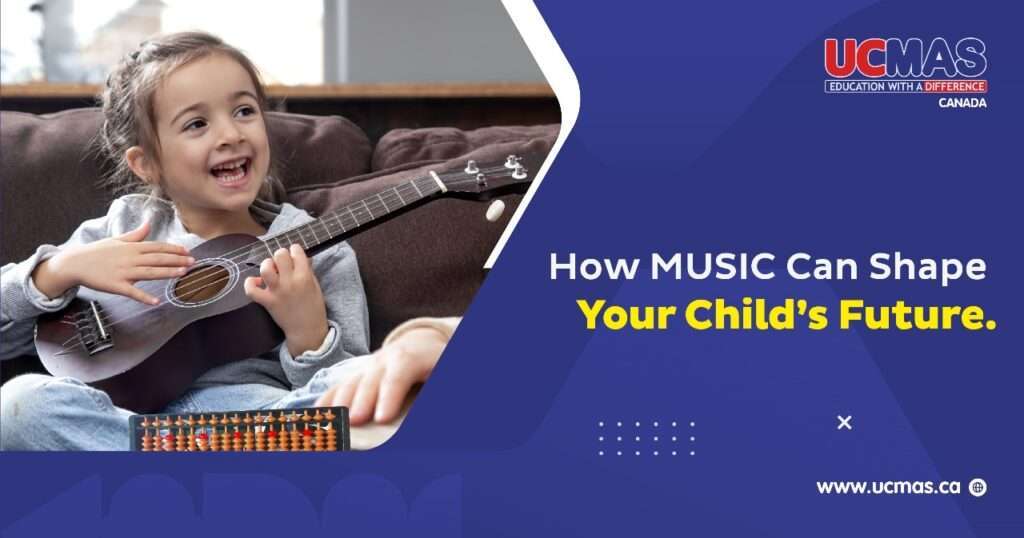
Did you ever see little children dance? They know nothing about music or dance, yet they try to stomp their feet or move their hips to music. That’s what music is, a universal language, a mode of expression, where you don’t necessarily have to know it fully, to enjoy it.
Listening to music can be more than a hobby, considering the benefits that accompany the simple act of enjoying music. There’s a reason why we remember song lyrics more easily than the birthdays of our loved ones. Music has many benefits, including stimulating growth and development. Let’s understand how music can be beneficial for our children and how to integrate music into their daily routines.
Cognitive Development and Academic Performance
One of the most compelling reasons to introduce music into your child’s life is its impact on overall brain development. Studies have shown that listening to music can stimulate the brain to release dopamine which boosts the feeling of well-being. Listening to music can also enhance language development in children as children recognize patterns and structures, which are essential for language acquisition.
Singing songs, in particular, can expand vocabulary and improve pronunciation learning. For bilingual children, music can serve as a bridge between languages, making it easier to learn and retain new words.
Did you know, learning music can also improve your child’s math skills?
Music involves patterns, counting, and understanding fractions (like in beats and rhythms). This can help children grasp mathematical concepts more easily.
Ever Heard of the Mozart Effect?
The “Mozart effect” is a theory that describes a supposed boost in brain function when people, especially children listen to music composed by Mozart. While the extent of this effect is still debated, the underlying principle remains valid: music activates and stimulates the brain in unique ways. Children exposed to music from a young age often show improved memory, attention, and problem-solving skills, which are critical for academic success.
Emotional and Social Growth
Music is a powerful tool for emotional expression and social interaction. Children, especially those who struggle with verbal communication, can find a non-verbal outlet to express their feelings and emotions in music. Playing an instrument or singing can be therapeutic, helping children to manage stress, anxiety, and other emotional challenges.
In group settings, music fosters collaboration and teamwork. Participating in a choir, band, or orchestra teaches children the importance of listening to others, synchronizing efforts, and contributing to a collective goal. These experiences build key social skills such as empathy, cooperation, and leadership.
As you encourage your child to engage in musical activities, you’re not just nurturing their artistic talents but also supporting their emotional and social development. Music can be a comforting friend during lonely times and a joyous companion during celebrations. It can also be a means of connecting with others and forming bonds that overcome linguistic and cultural barriers.
Physical Development
Playing musical instruments can significantly contribute to a child’s physical development. For instance, learning to play the piano enhances hand-eye coordination and fine motor skills. String instruments, like the violin or guitar, require precise finger movements and posture control. These physical skills can translate into better handwriting, improved dexterity, and overall better physical coordination.
Dancing to music is another excellent way for children to develop physically. Dance combines movement with rhythm, improving cardiovascular health, balance, and flexibility. It also helps children understand the importance of regular physical activity in a fun and engaging way.
Creativity and Imagination
Music is a fertile ground for creativity and imagination. Children are encouraged to think outside the box and develop innovative thinking when they explore different musical genres, sing their own pieces, or even just come up with dance steps. This creative process is invaluable in all areas of life, fostering a curious mindset that embraces exploration.
As a parent or teacher, you can create an environment that encourages musical creativity by providing access to various instruments, or simply a space where children feel free to experiment with sounds. Encourage them to sing, create their own melodies or rhythms, or just listen to music. This not only boosts their confidence but also instills a lifelong appreciation for music.
Practical Tips for Integrating Music into Your Child’s Life
Given the myriad benefits of music, you might be wondering how to effectively integrate it into your child’s daily routine. Here are some practical tips.
Start Early
Introduce your child to music from a young age. Even babies respond positively to lullabies and simple melodies.
Make It Fun
Choose music activities that your child enjoys. Whether it’s dancing, singing, or playing an instrument, the key is to make it a fun experience.
Incorporate Music into Daily Routines
Use music as a background for everyday activities. Sing nursery rhymes during bath time, play soft classical music during homework, or have a fun dance session.
Provide Opportunities for Learning
Enroll your child in after-school programs for music or summer camps with musical inclination to encourage participation. Learning an instrument or joining a choir can provide structured musical education.
Be Supportive
Show interest in your child’s musical journey. Attend their performances, listen to their practice sessions, and celebrate their progress.
Diverse Musical Exposure
Expose your child to various musical genres and cultures. This not only broadens their musical horizons but also fosters cultural appreciation and awareness.
The power of music in a child’s development is undeniable. Integrating music into your child’s life enhances their academic abilities and supports their emotional, social, physical, and creative growth. Your child’s musical journey profoundly impacts shaping them into well-rounded, confident, and expressive individuals.
Another medium that works wonders with the rhythm of your child’s learning process is abacus math. At the UCMAS math program, children are introduced to a range of activities like flashcards, the Abacus, mental math, and more that shape and develop their academic strengths and overall life skills. Register today to support their overall cognitive growth and development.





